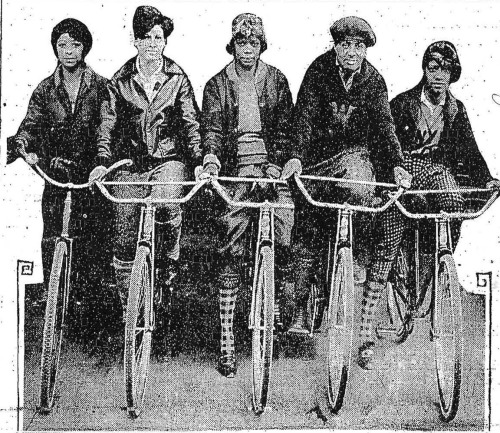 One of America’s earliest cycling stars and the very first African-American cycling star, Major Taylor is a sports legend. It is unsurprising given the sheer number of inspirational angles to his story. Taylor’s raw talent as a cyclist pulled him from abject poverty. He rose to fame as black man in Jim Crow America. He was breaking world records and became a world champion as a teenager.
One of America’s earliest cycling stars and the very first African-American cycling star, Major Taylor is a sports legend. It is unsurprising given the sheer number of inspirational angles to his story. Taylor’s raw talent as a cyclist pulled him from abject poverty. He rose to fame as black man in Jim Crow America. He was breaking world records and became a world champion as a teenager.
Taylor’s story is well documented in at least a half dozen books, a documentary film, and an Australian TV mini-series. The Smithsonian’s Past Imperfect blog added to that collection with a well written, in-depth article covering Taylor’s childhood, introduction to cycling, rise to fame, the discrimination he faced, his impoverished final years of life, and more.
From “The Unknown Story of the Black Cyclone, the Cycling Champion Who Broke the Color Barrierâ€:
Before his teenage years ended, Taylor became a professional racer with seven world records to his name. He won 29 of the 49 races he entered, and in 1899, he captured the world championship of cycling. Major Taylor was just the second black athlete to become a world champion, behind Canadian bantamweight George “Little Chocolate†Dixon, who had won his title a decade before.
Taylor’s victory earned him tremendous fame, but he was barred from races in the South, and even when he was allowed to ride, plenty of white competitors either refused to ride with him or worked to jostle or shove him or box him in. Spectators threw ice and nails at him. At the end of a one-miler in Massachusetts, W.E. Backer, who was upset at finishing behind Taylor, rode up behind him afterward and pulled him to the ground. “Becker choked him into a state of insensibility,†the New York Times reported, “and the police were obliged to interfere. It was fully fifteen minutes before Taylor recovered consciousness, and the crowd was very threatening toward Becker.†Becker would be fined $50 for the assault.
Click here to read the whole article.


